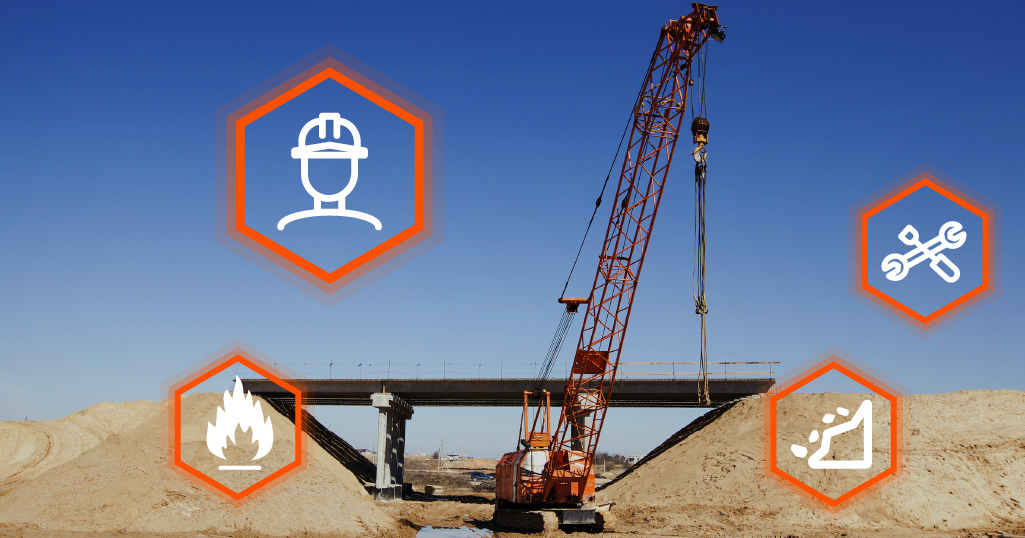Simplifying IoT on complex construction projects

The internet of things (IoT) in construction market is expected to reach more than $44bn by 2031 – and with good reason. IoT-based solutions make the monitoring and management of construction projects more efficient, putting data at the heart of decision-making.
IoT devices can monitor vibration, tilt, motion and more - demonstrating compliance with regulations and allowing for quick action to be taken when an issue arises. On major infrastructure projects, with thousands of pieces of equipment and workers on site at any one time, however, collecting and analysing data across a whole site is complex and potentially costly.
The data these devices collect can then feed the latest in digital twins, analytics dashboards and other applications which are used across the construction industry. Properly deployed, the benefits of this technology are significant:
Enhanced Safety: IoT devices can be used to monitor construction sites in real-time, allowing for the early detection of safety hazards and improving the overall well-being of workers.
Efficient Resource Management: IoT sensors can help in tracking and managing construction equipment, materials, and tools, leading to significant cost savings.
Improved Project Management: With IoT, construction companies can monitor the progress of projects remotely, ensuring they stay on schedule and within budget.
Predictive Maintenance: IoT technology can be employed to predict equipment maintenance needs, reducing costly downtime.
Remove complexity in IoT deployments
Often, the challenge comes in quickly and efficiently setting up and connected sensors – potentially thousands over one single site. Wi-Fi connectivity is often sparse, cellular coverage can be unreliable, and sites are dynamic. Connecting sensors can be tricky.
Krucial’s solution is simple: connect any sensor from any location into any application.
Krucial CONNECT can digitise a whole construction area of up to 15km. Every single one of the potentially thousands of sensors monitoring environmental conditions, asset conditions and asset usage can connect to one single solution – making digital infrastructure easier than ever to deploy.
Data from these sensors is made available continuously to decision makers via cellular and multiple satellite backhauls – switching automatically depending on availability. If cellular cuts out, satellite kicks in automatically – and there are multiple satellites which can keep data flowing. This maximises uptime, guaranteeing resiliency and reliability, and ensuring decision-makers have access to data no matter what.
Why is simplicity so important?
Having a single point of truth, a single solution through which all digital solutions flow, makes deployment quick and easy, and training more straightforward than ever.
Krucial solves a number of the most common challenges to deploying IoT.
Connectivity an issue? Our resilient cellular and multiple satellite backhauls with smart-switching all but guarantees connectivity in any location.
Concerned about integration with existing systems? We use a rest API which means data can easily integrate into any dashboard, business system or digital twin you use already.
Training worries? Our hardware can be deployed in a matter of hours, immediately connecting all sensors on site and sending data back that day – no prior expertise is required from the user.
IoT in the construction industry is transformative, and Krucial makes the technology’s deployment easier than ever. Get in touch to find out more.
Share this article
If you want more information on how Krucial can digitize your construction project quickly and easily, fill out the form below and one of the team will be in touch.
Recent Posts
Archives
- May 2023 (8)
- June 2023 (8)
- July 2023 (6)
- August 2023 (6)
- March 2023 (5)
- September 2023 (5)
- September 2024 (5)
- October 2024 (5)
- November 2024 (5)
- October 2022 (4)
- November 2022 (4)
- February 2024 (4)
- May 2022 (3)
- July 2022 (3)
- August 2022 (3)
- September 2022 (3)
- February 2023 (3)
- October 2023 (3)
- November 2023 (3)
- March 2024 (3)
- April 2024 (3)
- May 2024 (3)
- August 2024 (3)
- January 2025 (3)
- February 2025 (3)
- May 2021 (2)
- July 2021 (2)
- October 2021 (2)
- February 2022 (2)
- March 2022 (2)
- June 2022 (2)
- December 2023 (2)
- December 2024 (2)
- June 2019 (1)
- March 2020 (1)
- July 2020 (1)
- September 2020 (1)
- October 2020 (1)
- March 2021 (1)
- June 2021 (1)
- September 2021 (1)
- December 2022 (1)
- January 2023 (1)
- April 2023 (1)
- January 2024 (1)
- July 2024 (1)
Proud to be supported by








